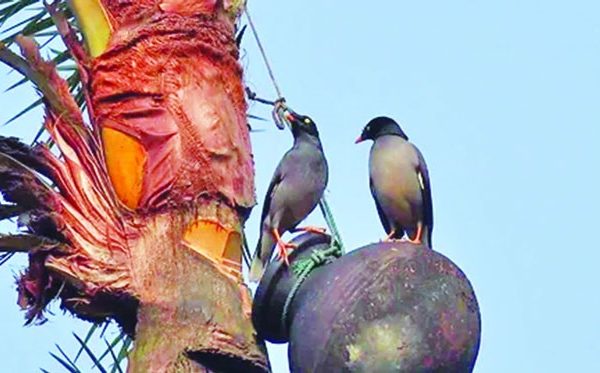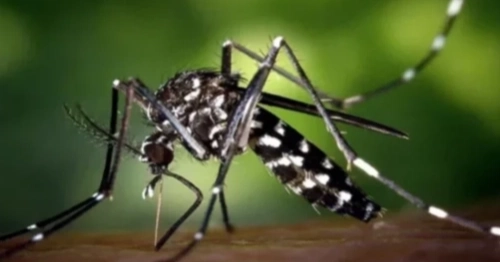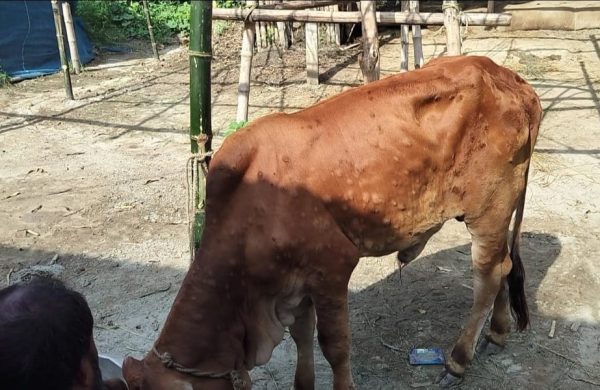Nipah virus: Avoid raw date palm sap
- Update Time : Sunday, December 15, 2024

—Sakibul Hasan—
It is quite difficult to find people who do not like the sap of date palm in winter. Yes, it’s true. In our country, as soon as winter arrives, the competition to drink date sap begins. However, with the arrival of winter, various diseases also emerge, and one of them is Nipah virus, which has a high risk of transmission through consuming raw date palm sap. Many people also make syrup and steam rice cakes (vapa pitha) with date sap.
In general, date sap is collected in Bangladesh from Kartik to Magh month, that is, from October to February. The regions where the highest amount of date sap is collected are Kushtia, Faridpur, and Jessore. Although date sap is a favorite drink for many, how aware are we of the risk of spreading Nipah virus through its consumption? According to the World Health Organization, Nipah virus is a zoonotic virus, meaning it spreads from animals to humans and later from person to person. Nipah virus causes inflammation in the brain.
Nipah virus was first identified in Bangladesh in 2001, in Meherpur. That year, 13 people were identified with the virus, and many of them died. In 2012, 18 people were infected, and in 2017, 3 people were identified. From 2018 to 2022, 20 cases were reported. In the last 23 years, a total of 339 people have been infected with Nipah virus in Bangladesh, and 240 of them have died. Therefore, we must remain cautious about Nipah virus.
In our country, date palm trees are cut at certain points to make holes, and pots are hung in these holes to collect the sap early in the morning. Bats often drink from the sap at night. As a result, their saliva and other bodily fluids mix with the sap, increasing the risk of transmitting the Nipah virus when humans consume raw date sap. Similarly, fruits such as papaya, guava, and ber that have been pecked by bats can also spread the Nipah virus. This happens because bats touch the fruit with their mouths, transferring the virus.
When infected with the Nipah virus, the symptoms can range from mild fever and headache to more severe issues like weakness, respiratory distress, cough, vomiting, and other symptoms. Understanding the symptoms of this virus is crucial.
The symptoms of Nipah virus infection can sometimes be absent, or it may begin with common flu-like symptoms, such as high fever, headache, muscle pain, cough, stomach pain, nausea, weakness, etc. If not treated in time, the virus can be fatal.
There are certain precautions to be taken while collecting date sap. For instance, those who collect the sap should be vigilant. Bats may have left saliva around the pots, so wearing a mask is important, and after collecting the sap, hands should be washed with soap. The pots used for collecting the sap should be covered, and the sap should be boiled before drinking. Avoid close contact with infected patients, and ensure proper hygiene by washing hands with soap and water after caring for them. It is essential that the place where the sap is collected is safe and clean. Furthermore, date sap should be boiled before consumption.
Currently, there is no vaccine or effective treatment for Nipah virus. Hence, awareness and caution are crucial. There are measures we can adopt to prevent the virus from spreading. For example, the virus can spread from person to person, so those who care for patients or handle the bodies of the deceased should be cautious. All clothing and other items used by patients should be thoroughly cleaned. People should not eat from the same utensils or sleep on the same bed as the patient. The patient’s saliva and sputum should be collected in a container and burned. Since Nipah virus symptoms can appear anywhere from 5 to 12 days after exposure, those who have consumed date sap recently should be monitored closely. Those who take care of the patients should wear masks and gloves. Let us not be fearful of the Nipah virus but stay aware and also help others become informed about this virus.
(The writer is a student, Department of Sociology, Dhaka College)



















